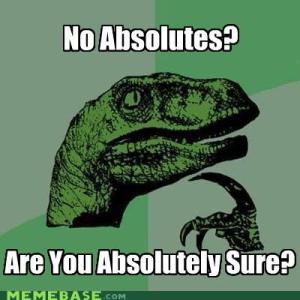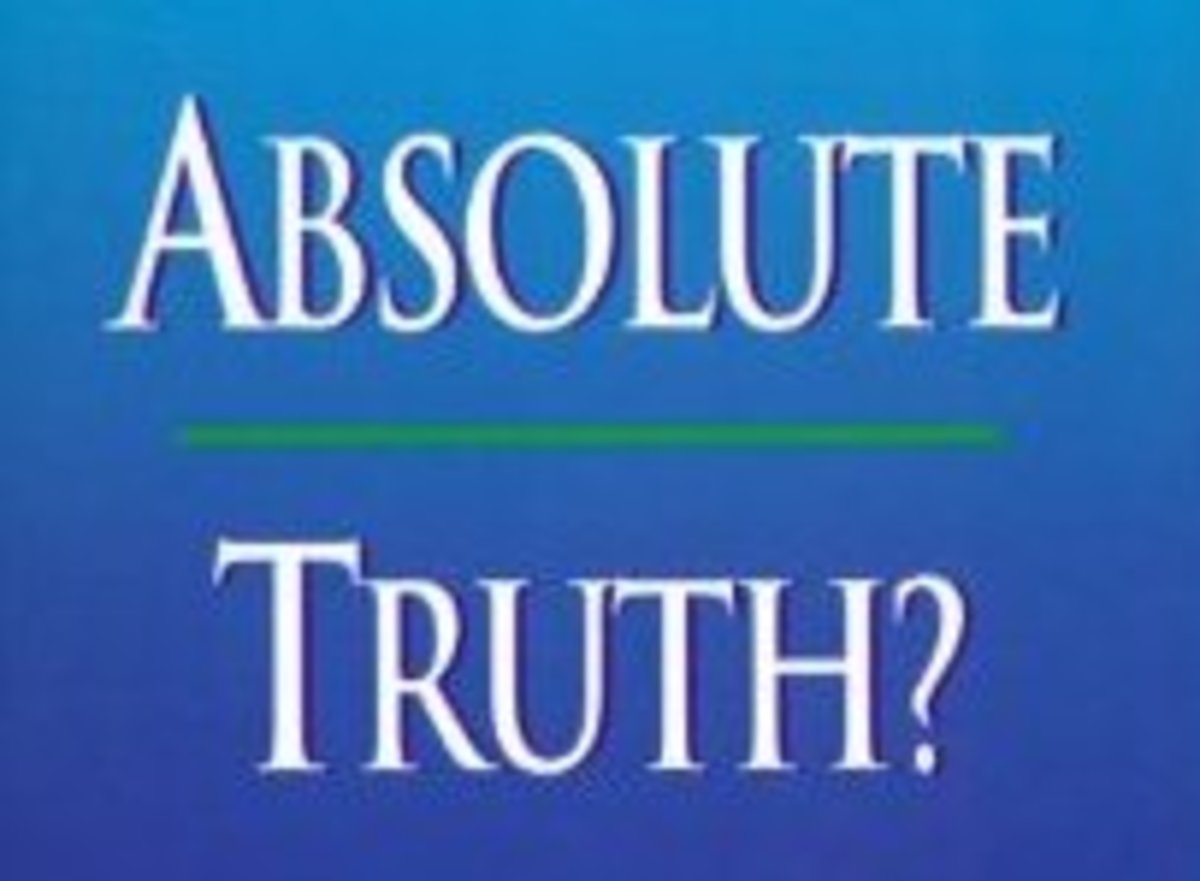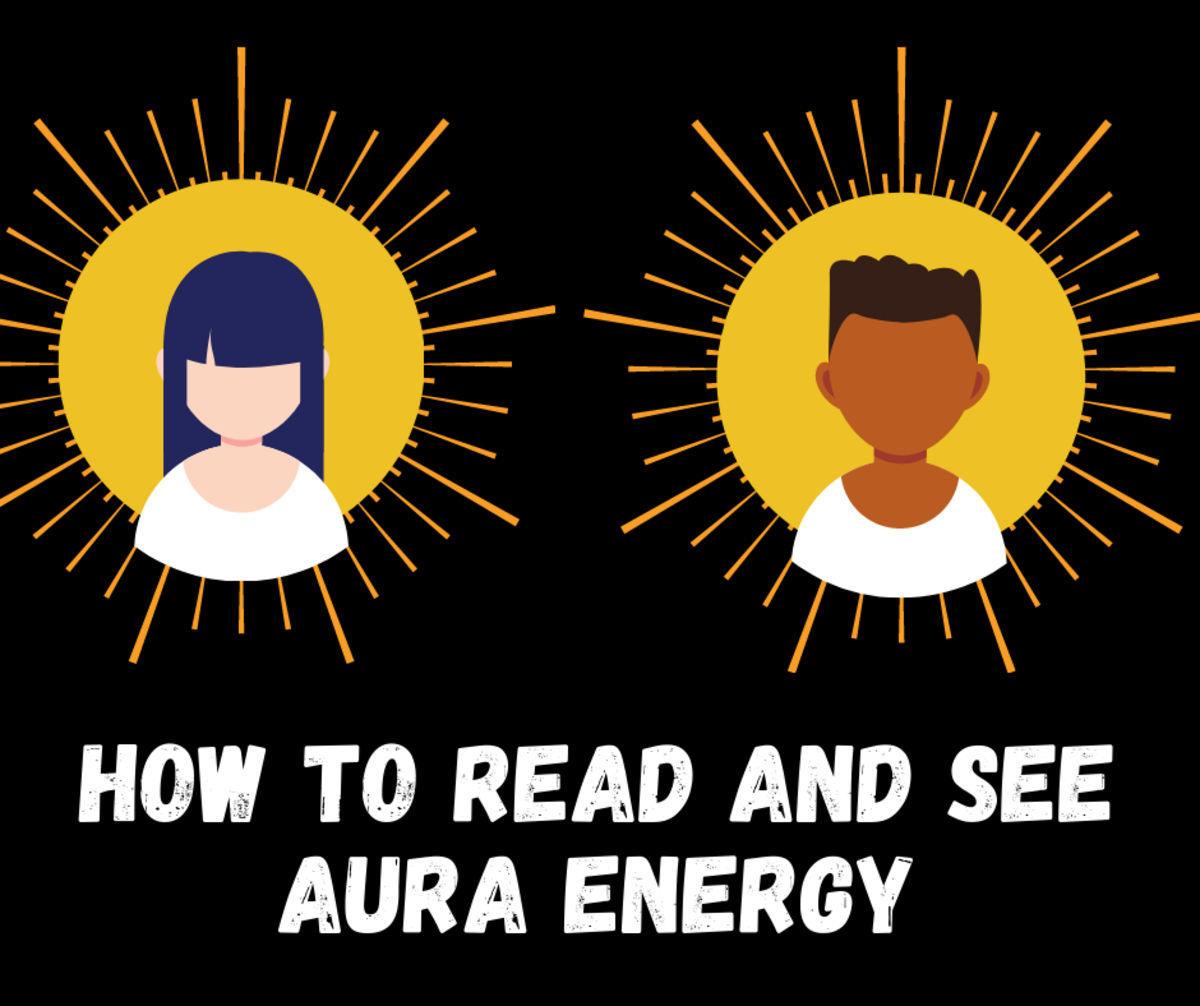Busting The Myth of "No Absolute Truth" And Explaining Absolute Truth
First and foremost...
The author of this piece holds neither a doctorate in philosophy nor, by any means, wishes to represent themselves as an authority on the subject. He's simply read a lot about both eastern and western philosophy, it's concepts, history and the like.
Should any ideas expressed here pique the reader's interest, it's highly encouraged you to read more about philosophy and its various "schools" by researching it yourself. Read on multiple viewpoints as all are very interesting and informative.

Philosophy and The Absolute Truth
The age old argument of whether there is "absolute truth" or not is an old one indeed.
Whether "absolute truth" or "universal truth", as some call it, that is, something that exists and "is an unalterable and permanent fact.", exists has been the fodder for philosophical debate by philosophers for ages. As with all arguments and debates of a philosophical nature, all sides are debatable and open to counter examples that are equally as plausible.
Philosophy, in general is based largely on thought exercises and experiments meant to expand or possibly explain, not only man's place in the universe, but, his interactions within it. Workings of the universe, reality and conceptual ideas referring to it's existence, workings, so on and so forth and mankind's interactions with, within and without it are toiled over and torn apart.
Reading on and learning philosophical methodology, ideas and beliefs are an exceptional way to diversify and augment problems solving methods, critical thinking and can aggrandize the thought process to elaborate on and involve the understanding of abstract concepts, like the understanding of love or hate, it's application to one's life etc.
There is, nor ever will be a "right" philosophy.
This is tantamount to it's understanding and usage. The introduction of new concepts is ongoing and ever changing in the field. The acceptance of one school of philosophical teachings and limitations over another are purely up to the individual. There has never...ever been a serious philosopher that wasn't comfortable with his or her stance on any philosophical point being disputed.
Often, a point is made to open a debate on the subject, it's meaning, it's application, etc. This ideology harkens back to very beginnings of philosophy to Socrates debating students and his contemporaries.
What is philosophy?

Absolutely...No Absolute Truth
"Absolute truth" as it relates to the philosophical argument can best be summed up as "inflexible reality: fixed, invariable, unalterable facts. For example, it is a fixed, invariable, unalterable fact that there are absolutely no square circles and there are absolutely no round squares.".
Being as irrefutable "absolute truth" is a human and indeed a necessity for reality in general, it's often hard to dispute logically. Still, there remains the stoic assumption that there is "no absolute truth" among certain die hard advocates. Most who suggest and hold fast to the idea of "no absolute truth" often couple it with religious connotations.

No Absolutes!
Often, the religious connotations associated with the "no absolute truths" stance are thinly veiled bigotry toward Christianity and religion in general.
The postulate asserts that "truth" is based and relative toward the observer's opinion on what he or she sees and is limited to his or her "sensory limitation" (the five senses).
More or less, it's point is often argued that you cannot define a "truth" via a person's limited sensory faculties.
This is due to interpretation via the senses differently or for some, not at all (blindness, etc.). So, in essence, how can something be "absolutely true", if the instrument used to measure is always different, interpreted differently, limited and often flawed with bias, belief, etc.

The Absolute Resolution
Though, as stated before, philosophy (and it's expounding on any topic) is contested on almost every level on both sides of any topic, the common resolution for "no absolute truth" is often countered with the logical determination--"If it is absolutely true that there is "no absolute truth", then, there is absolute truth.".
That sounds pretty logical and sound right? It's a circular argument that, though entertaining some interesting philosophical views, is somewhat resolved.
Well...not for some.

The Philosopher Pretend
As is par for the course with any belief system, logical or otherwise, there are always fanatics. People that seem to think their version is the only version of...well, anything.
The internet seems to be peopled with armchair philosophers touting their views to be "the answer" and consequently telling others that their, often conflicting views are "wrong".
As I said before, philosophy is an open forum, all of it's many concepts and arguments debatable. So, to advocate one view and proclaim it as the undisputed answer, is patently wrong. Still, as with any topic, there are always weirdos. One such person writes right here on HubPages. I found him one day while reading something else. I participated in a rather...well, for him lively, for me...relatively amusing "pseudo-debate".
Apparently, he's one of "those people" who simply must be right all the time. It's a bit child like, but, for reasons I explain HERE. It's pretty much an act...or at least I hope so. If his HubPage persona is his actual persona...he's a terribly child like and sad individual. Read on!








